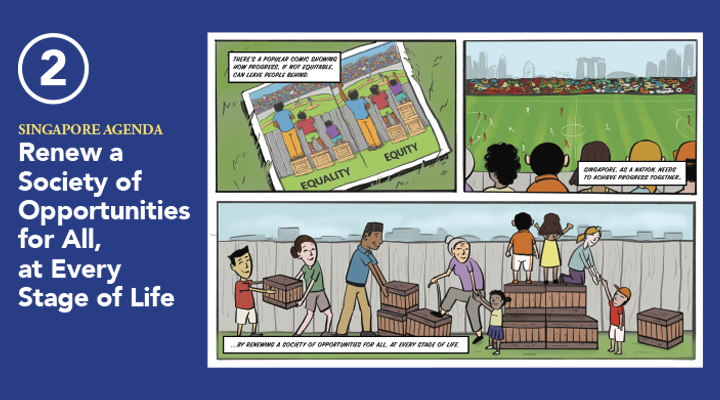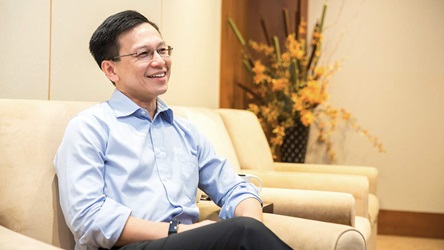Singapore Agenda: The End Of Retirement?

Singapore’s population is ageing rapidly. By 2030, one in four Singaporeans will be aged 65 years or older. With advancements in healthcare, biotechnology and anti-ageing solutions, more people will be able to live longer and healthier lives.
Longer lifespans are now reshaping views about ageing and career aspirations – just one of the many driving forces that we must contend with as a society, young and old alike.
The need to work?
With increased longevity, people may feel the need to work longer before they are financially able to retire.
Beyond financial security, those approaching retirement age may want to continue working for other reasons. In a Wall Street Journal article, David Stoll writes that “a job is increasingly the source of the types of friendship and stimulation that are hard to find” in more relaxed social situations.
He cites economist Alicia Munnell, who in her book Working Longer observes that work has become “more personally and socially rewarding”, addressing a void once filled by children (see: falling birth rates) and being part of religious organisations.
Issues of ageism
One challenge to working longer may be ageism. Ms Peh Kim Choo, Chief Executive Officer of the Tsao Foundation, says a mindset change at all levels is needed to reimagine the capacity and roles of older people, and to remove ageism from work practices and policies.
With automation reducing the physical demands of work, there are opportunities to update policies, job design and work arrangements so that seniors continue to be part of the workforce.
As part of SkillsFuture Mid-Career support, local workers in their 40s and 50s looking for a mid-career boost can soon tap on a group of volunteer Career Advisors, who will provide peer-level support for navigating professional pathways.
Volunteering as active ageing
According to the Ministry of Manpower’s Labour Force Survey 2016, almost half of the seniors in Singapore remain outside the labour force, despite being in relatively good and fair health.
Even as more seniors remain employed, those who retire, and indeed those who continue working, can make volunteering a key part of active and purposeful ageing. The SG Cares movement to encourage volunteerism has a target to reach out to 30,000 seniors between September 2019 and September 2020.
Other driving forces affecting our society
As we respond to the challenges and opportunities of longevity and an ageing population, we must also keep an eye on other driving forces.
For example, technological changes can provide new opportunities, but some may need more help to adapt to these changes. In addition, over time, as parents who have accumulated more pass on their advantages to their children, children may have increasingly different starting points, translating into different outcomes.
The question for many countries, including Singapore, is how we will continue to provide opportunities for all within our society – young and old alike, throughout their lives and regardless of background?
SGPA THRUST #2:
Renew a Society of Opportunities for All, at Every Stage of Life
Amidst the trends affecting our society, such as rapid technological change, social stratification, and an ageing population, how will we build a society of opportunities for all, throughout life? We will do this by:
- Holistically uplifting those from less advantaged backgrounds and enabling all Singaporeans to progress, regardless of starting points
- Empowering and energising our youth
- Redefining ageing as a positive force

“I took a spin on the frequently shared comic of equality versus equity, which shows spectators outside a stadium competing for wooden boxes to stand on. Progress need not be a zero-sum game; in this illustration, I envision a future where Singaporeans are working together to address social inequality by building opportunities to empower our youth and redefine our aged.”
RELATED STORIES
- POSTED ON
Mar 19, 2020
- TEXT BY
Tuber and Strategy Group, Prime Minister’s Office
- PHOTOS BY
Samuel Sianipar on Unsplash
-
Deep Dive
Strengthening Singapore’s Food Security









